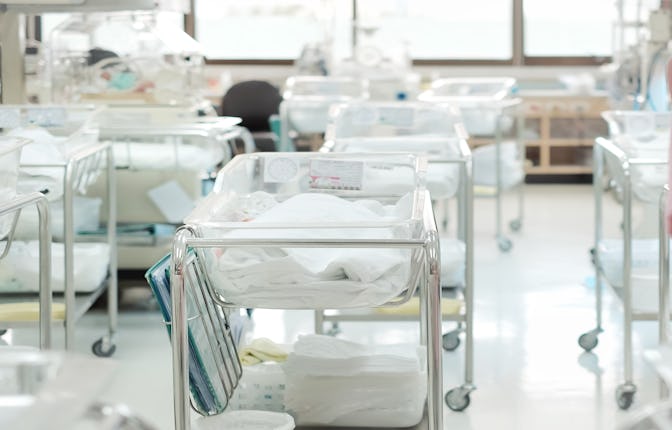Americans are having fewer kids — but they actually want more. Why?
The country’s birth rate is declining, but a new study shows it not necessarily by choice.

The global population may be booming, but the birth rate in the U.S. has been in something of a free fall for quite a while now; in 2021, it dropped to its lowest point in more than 100 years. A new study published in the Population and Development Review is attempting to make sense of why Americans are having less kids — and their findings may be surprising.
Researchers found that over several decades, young people actually haven’t wavered in the number of kids they want to have (two); but instead, they may be delaying when they have them or ultimately not following through on those initial parenthood desires for other reasons.
The study, which ended before the start of the COVID-19 pandemic, used data from the National Survey of Family Growth, allowing scientists to track different groups (or cohorts) of people born between the 1960s and 2000s, and ask them about their desire to have a family.
“Americans have been pretty consistent with how many children they say they want to have from the ‘60s to the 2000s,” Sarah Hayford, a study co-author, professor of sociology at The Ohio State University, and director of Ohio State’s Institute for Population Research, said in a news release. “Men generally say they want slightly fewer children than women do, but, like women, their preferred number of children hasn’t changed much.”
Of course, wanting kids and actually having them are two different things. “That doesn’t change the fact that people aren’t having as many children as they say they want, especially at earlier ages,” Hayford said.
There are a lot of different reasons why the birth rate is reaching new lows. Aside from the fact that the increased use of contraceptives like IUDs and the improved coverage of birth control under the Affordable Care Act have led to a decline in unintended births; Hayford speculated it could be due to fertility struggles, socio economic difficulties, or simply because people are now realizing how difficult raising kids can be. “As they age, they may be realizing how hard it is to have kids and raise kids in the United States and they’re saying they only want to have the one child, and don’t want a second one,” she said.
Beyond those people changing their minds or plans, the study also found that the percentage of people who’ve said they don’t want kids at all has increased from 5-8% in the 1960s and 1970s to 8-6% in the 1990s and 2000s.
Personally — and this is just me theorizing — I believe the decline has almost everything to do with Hayford’s last point. After all, uncertain prospective parents can point to a long list of justifiable concerns. Among others, there’s the rising cost of childcare and schooling, and the government’s woeful lack of support for new parents (the U.S. is currently one of only six countries in the world without national paid leave); the ongoing climate emergency; and fears and uncertainty about safety.
These days, it seems like increasingly more people, including celebrities, are realizing that parenthood might not be for them. And that’s okay! I remember proclaiming at 8 years old that I wanted two kids — twins like Lil and Phil from Rugrats. Of course, this was back when I had no responsibilities aside from making my bed and getting good grades. I didn’t have mortgage payments to make, news to stress over, or deadlines to meet. Unlike what some traditionalists may believe, deciding to live a childfree life doesn’t make me selfish. On the contrary, it’s realistic; it’s me realizing that I don’t have the capacity or desire to bring a baby into this world. And why would I ever have a kid if I’m not 100% excited about it? That’s just disastrous for both parties.